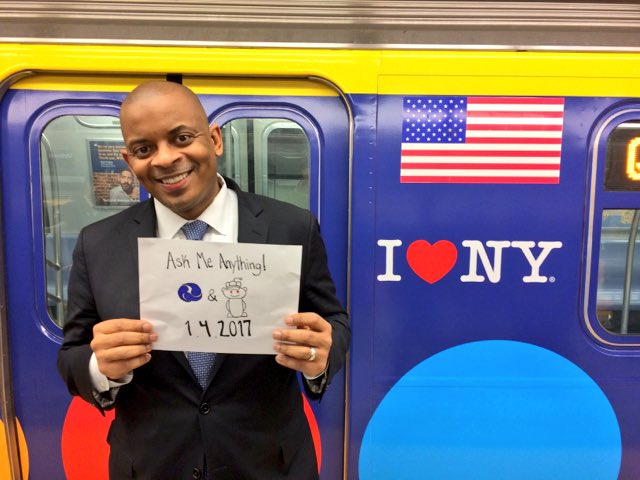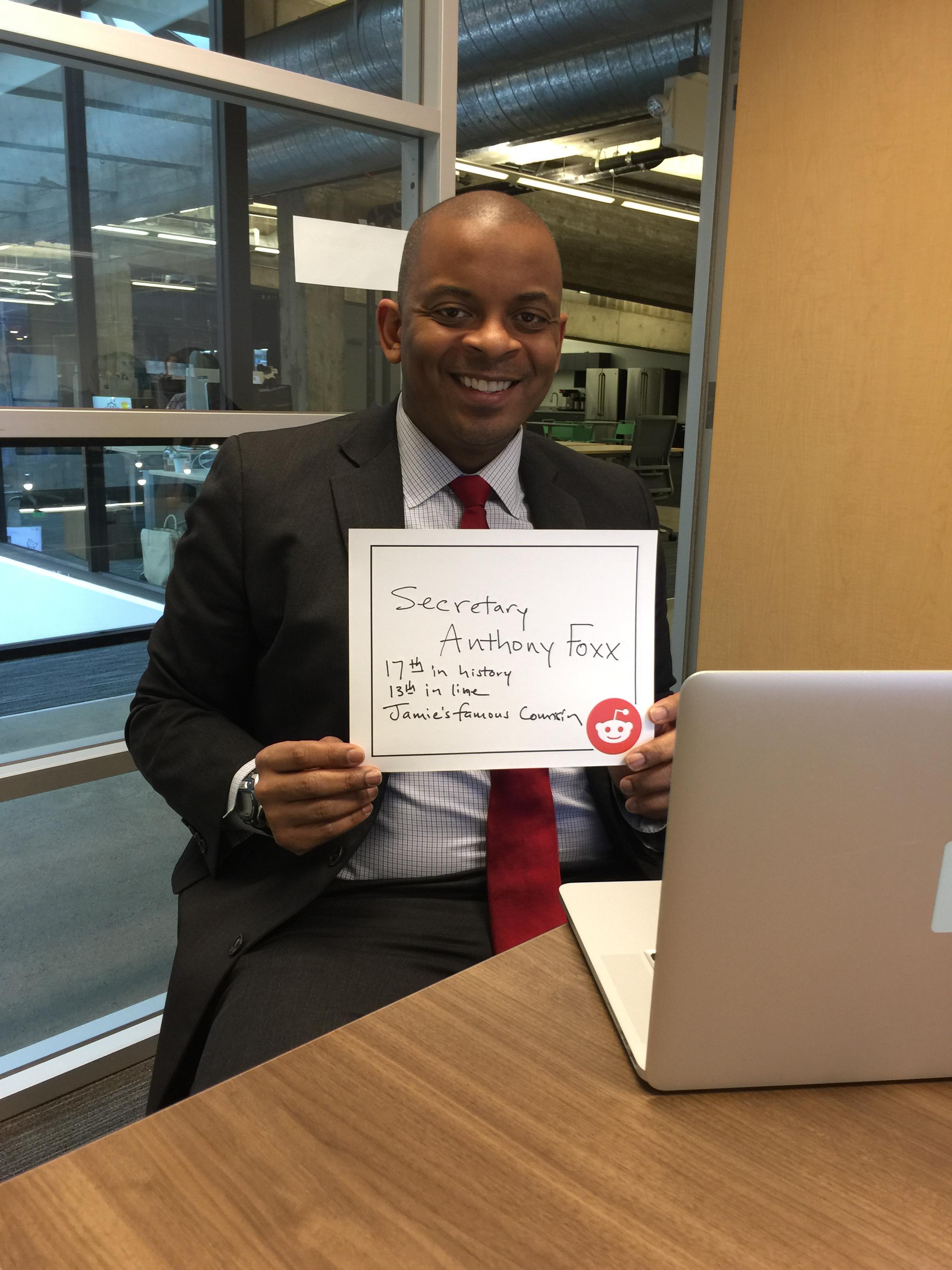January 5, 2017
 A key theme throughout Anthony Foxx’s tenure as USDOT Secretary has been expanding options and opportunities in American transportation networks. Foxx strove to engage community leaders, industry, and private citizens across all disciplines to develop right-size and right-fit solutions for pressing transportation issues.
A key theme throughout Anthony Foxx’s tenure as USDOT Secretary has been expanding options and opportunities in American transportation networks. Foxx strove to engage community leaders, industry, and private citizens across all disciplines to develop right-size and right-fit solutions for pressing transportation issues.
On January 4, Secretary Foxx participated in an Ask Me Anything session on Reddit, answering the public’s questions about his experience at USDOT, his accomplishments as Secretary, and his hopes for the future (as well as a few humorous asides).
(Ed. note: Reddit is a semi-democratic forum – users submit their own questions and vote on their favorites. In turn, Foxx viewed the most popular questions first, then responded to the questions of his choice.)
 This presented Americans with an opportunity to engage with the Secretary in a manner that suits his communication style: directly and earnestly.
This presented Americans with an opportunity to engage with the Secretary in a manner that suits his communication style: directly and earnestly.
By and large, Foxx’s priorities as Secretary of Transportation were predicated on his experiences with local government. As a city council member and then mayor of Charlotte for four years, Foxx was recognized for his attention to the long-term impacts of municipal policymaking. He focused on developing a regional transportation plan that spurred economic growth in Charlotte and addressed transit equity issues.
It was this focus on home rule and equity that set him apart when President Obama was evaluating candidates to succeed former Secretary Ray LaHood in 2013. Foxx’s philosophy is based on choice in transportation – which extends not just to a person’s preferences, but also into their opportunity to choose.
Urban/Rural Divide

On the topic of railroads, one user lamented that a trip from South Bend, Indiana to Washington, DC can amount to a 17-hour train ride each way (as opposed to 9 hours by car).
Responding to the question on how soon the United States could expect high-speed trains in the United States, Foxx identified end-to-end commuter rail and intercity passenger rail systems as a significant opportunity for rural areas to develop stronger connections with urban cores.

Another user identified transportation funding as a vital concern for mayors, identifying mayors’ frustrations with state government control of funds and, consequently, a disproportionate allocation to rural projects.
Foxx attested that the current method for funding transportation “needs a fundamental redesign” that will face significant political opposition. Foxx indicated that his administration has put together a framework for pushing funds directly to communities (which likely includes programs such as the TIGER Grants).
To this end, Foxx has also promoted USDOT’s recently-finalized MPO rule as a solution that will encourage planning activities in metropolitan areas rather than simply coordinating (Ed. note: ETW tracked the rulemaking process closely and gathered input from numerous stakeholders – you can view our analysis of the final rule here).
However, the Secretary reaffirmed a commitment to right-size, right-fit transportation policies: “this should never boil down to an urban versus rural thing. Our approach has to be flexible enough to help all types of communities thrive, and right now it is fairly rigid.”
Transportation Equity

Foxx highlighted the severe repercussions of transit inequity for people of color and impoverished communities, namely access to better jobs, schools, and housing. “Sometimes transportation assets can even improve a neighborhood and bring those things closer to home,” he said, referring to the Ladders of Opportunity project – the keystone of his effort to give Americans the power of choice in transportation.
It sought to bridge the gaps created by 20th Century transportation projects that divided Americans along economic and racial lines while also repairing and replacing aging infrastructure. In 11 communities like Philadelphia and Spokane, USDOT worked with communities and government officials to generate solutions to disjointed transportation networks and alleviate urban partitions created by highways.
Who is Zoidberg?
And, of course, it is only fitting that Secretary Foxx was the target of some light-hearted jokes on an anonymous forum:


 A key theme throughout Anthony Foxx’s tenure as USDOT Secretary has been expanding options and opportunities in American transportation networks. Foxx strove to engage community leaders, industry, and private citizens across all disciplines to develop right-size and right-fit solutions for pressing transportation issues.
A key theme throughout Anthony Foxx’s tenure as USDOT Secretary has been expanding options and opportunities in American transportation networks. Foxx strove to engage community leaders, industry, and private citizens across all disciplines to develop right-size and right-fit solutions for pressing transportation issues. This presented Americans with an opportunity to engage with the Secretary in a manner that suits his communication style: directly and earnestly.
This presented Americans with an opportunity to engage with the Secretary in a manner that suits his communication style: directly and earnestly.





